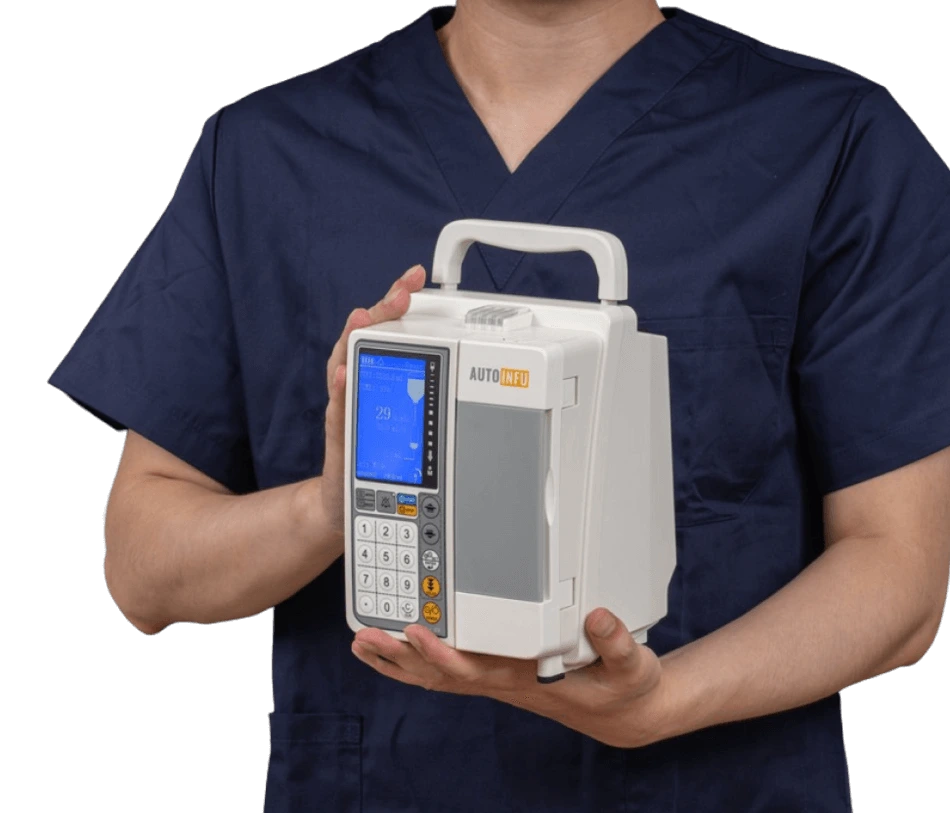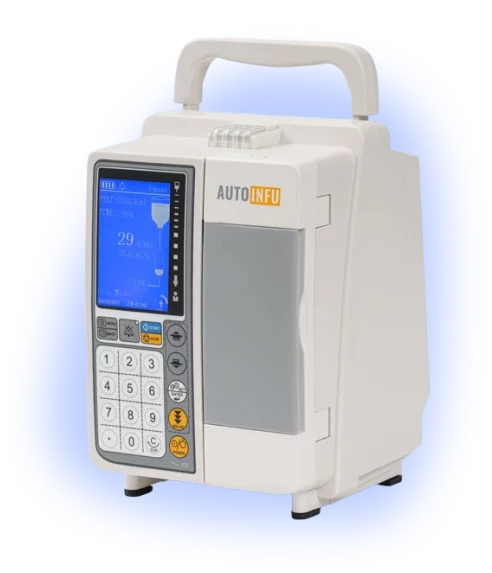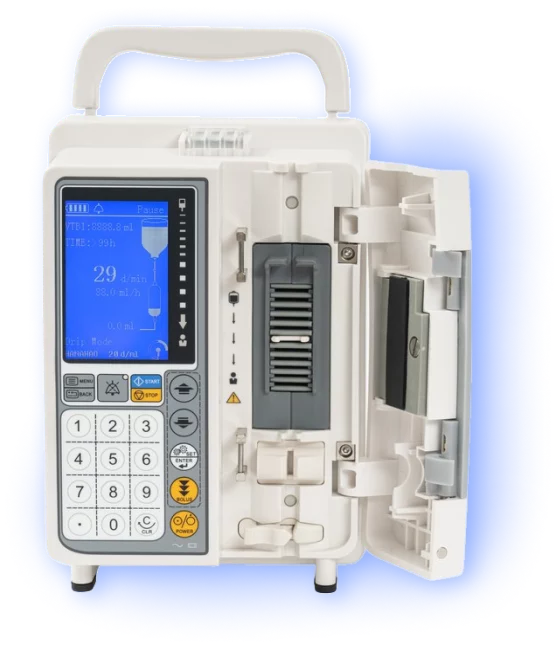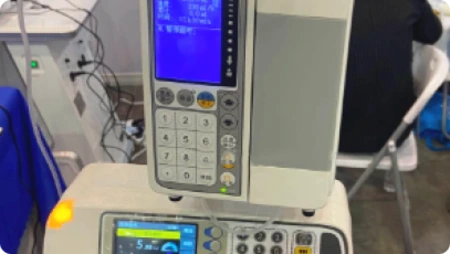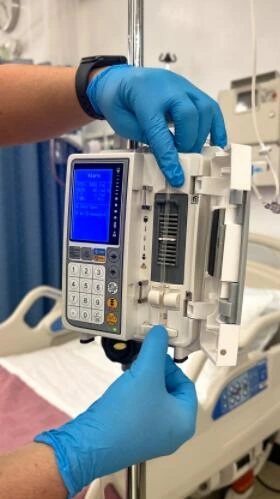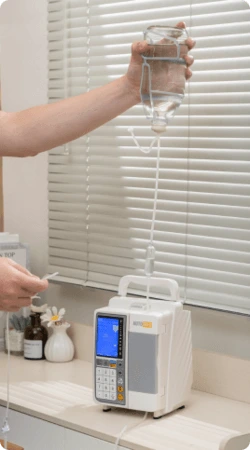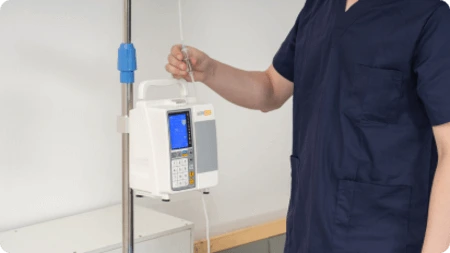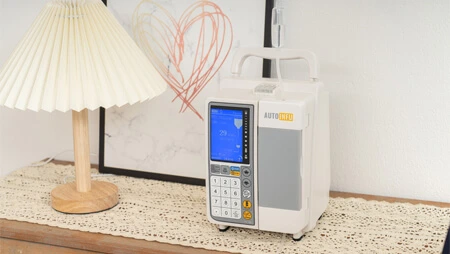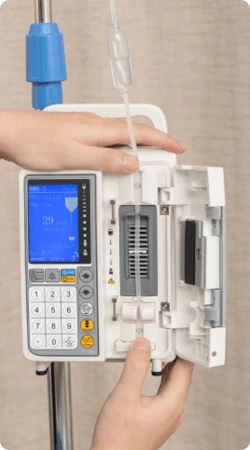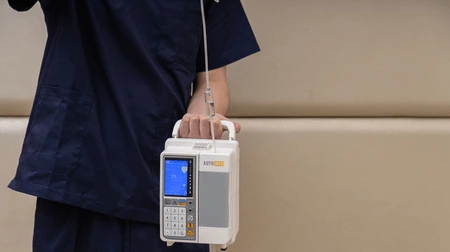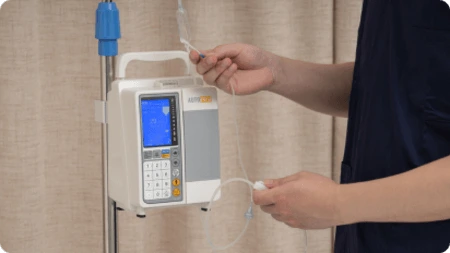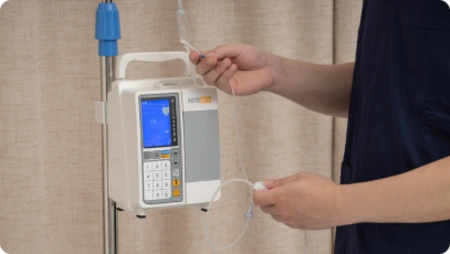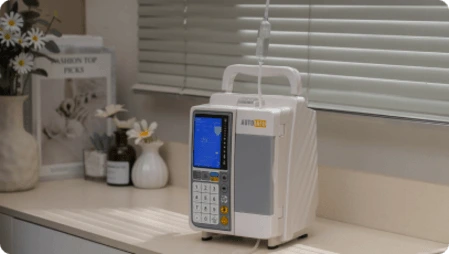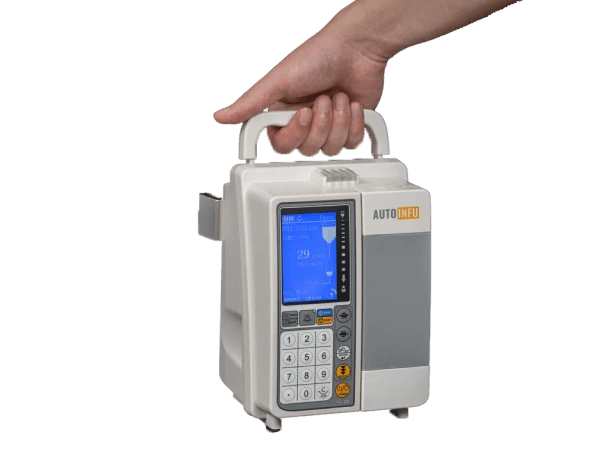The terms "infusion pump" and "IV (intravenous) pump" are often used interchangeably, but there is a subtle difference between the two:
An infusion pump is a broader category of medical device that includes various types of pumps used for controlled delivery of fluids, medications, and other therapeutic agents into a patient's body. Infusion pumps can deliver fluids and medications through various routes, including intravenous (IV), subcutaneous, epidural, and enteral (through the digestive system).
An IV pump, specifically, refers to a type of infusion pump designed exclusively for the intravenous route of administration. IV pumps are highly specialized for IV therapy and are essential for precise control of the infusion rate, especially when administering critical medications or fluids. IV pumps are commonly used in hospital settings, emergency rooms, and ambulances to provide intravenous therapy to patients.
